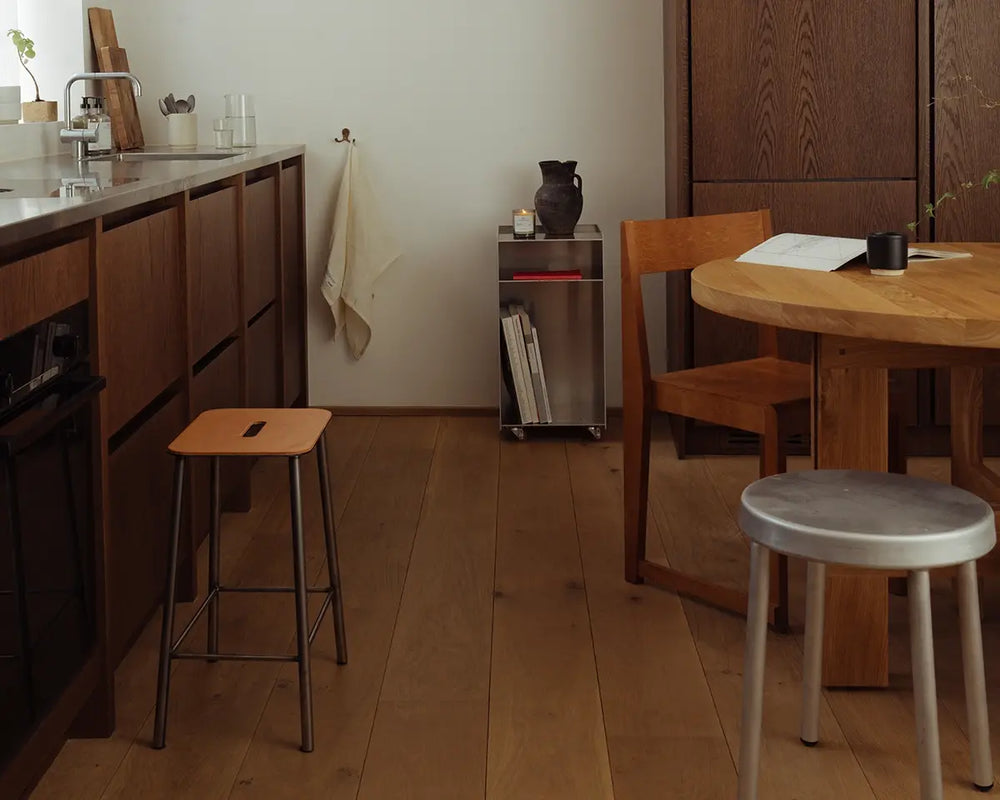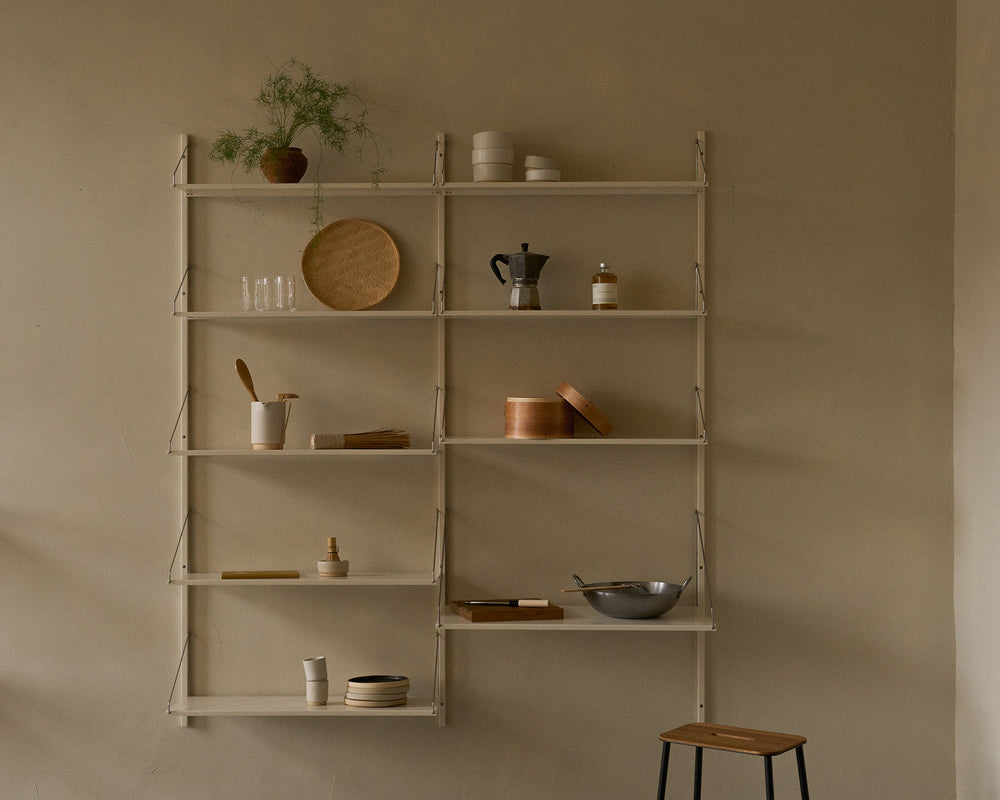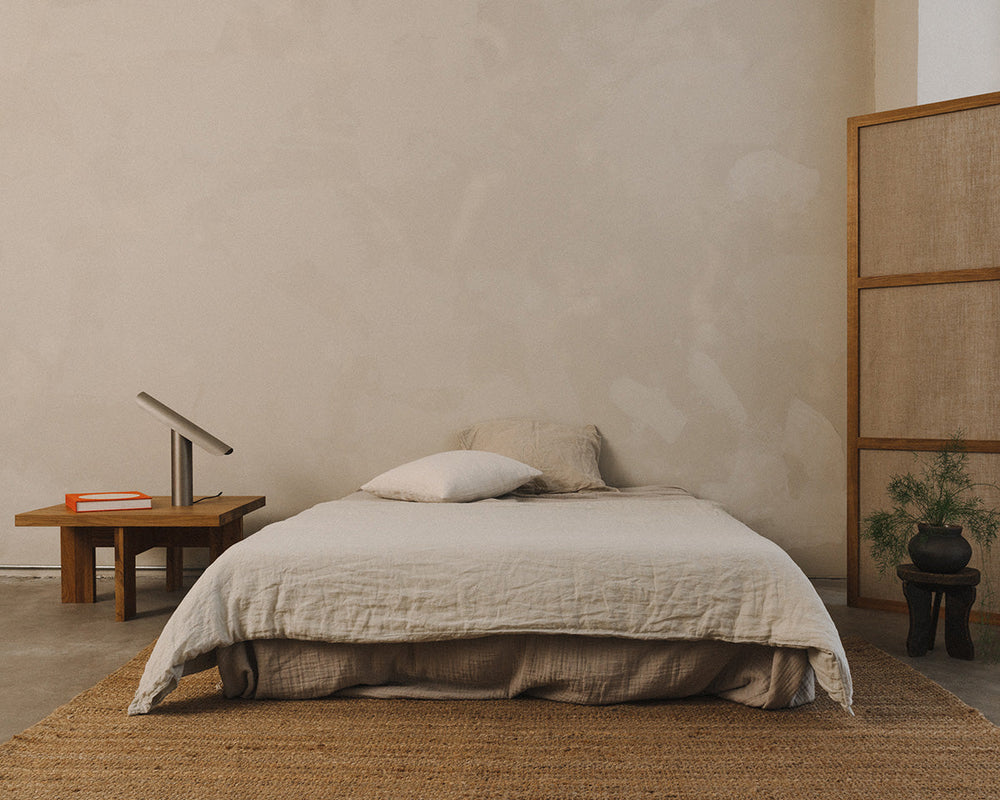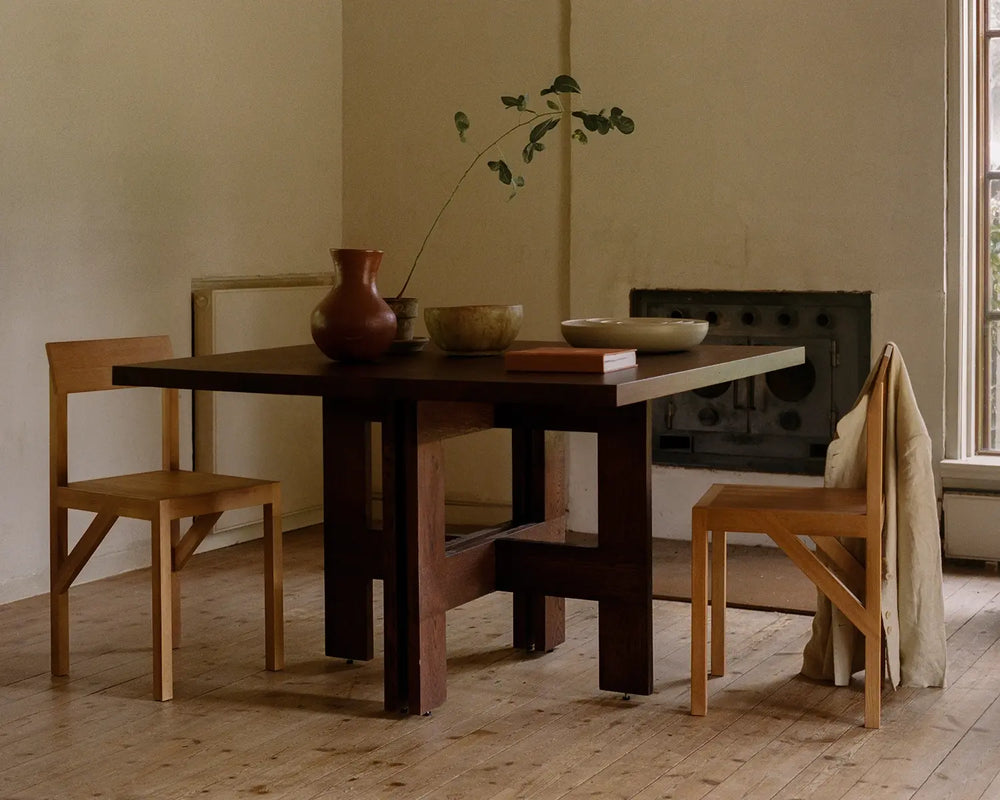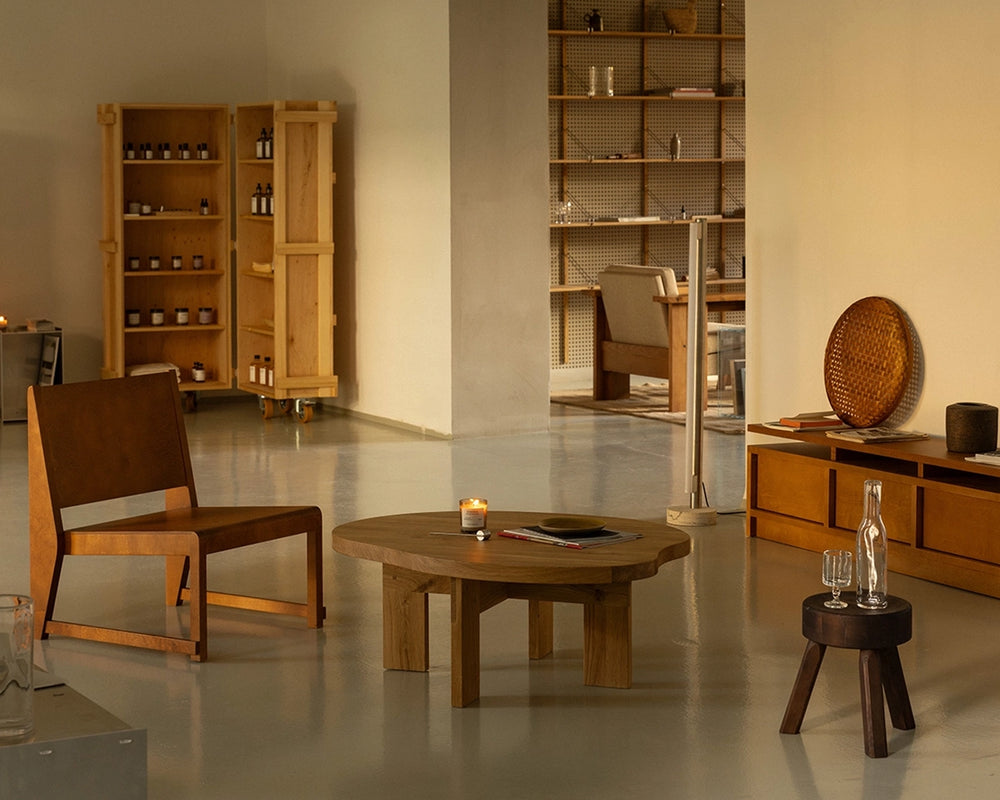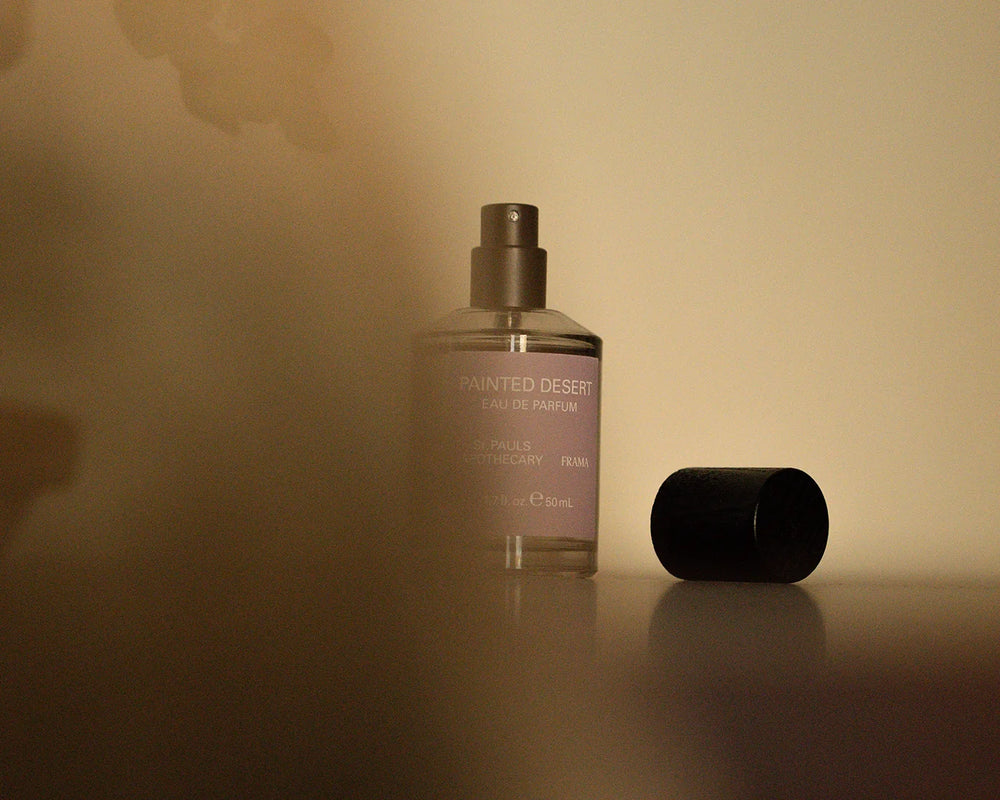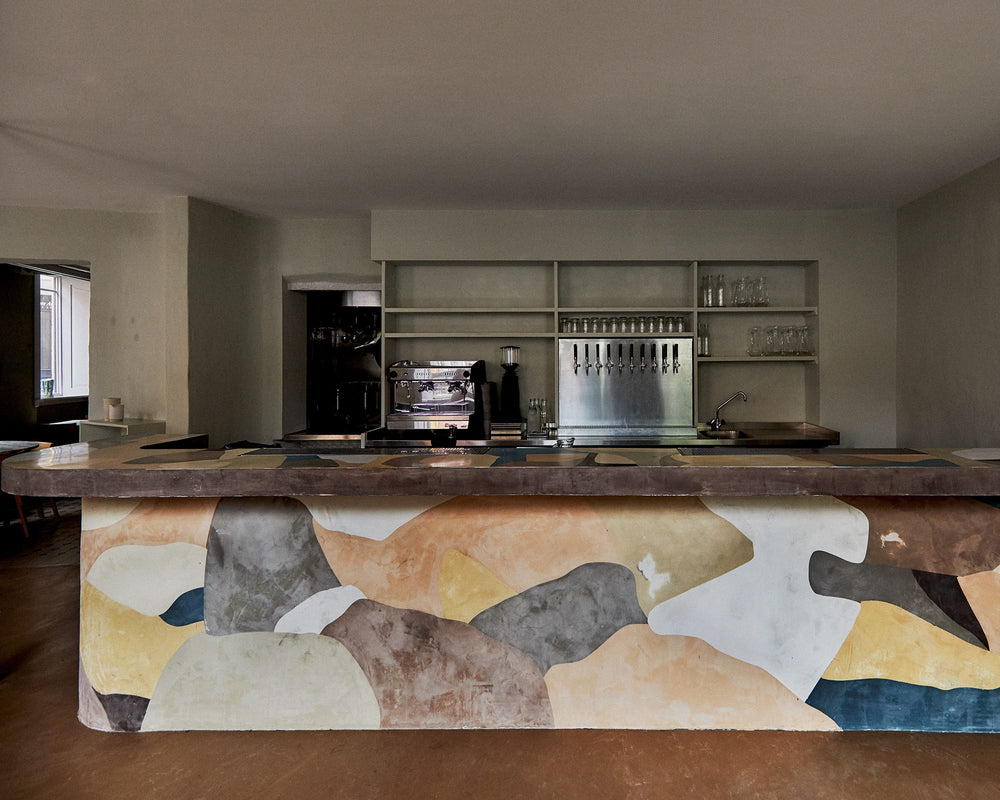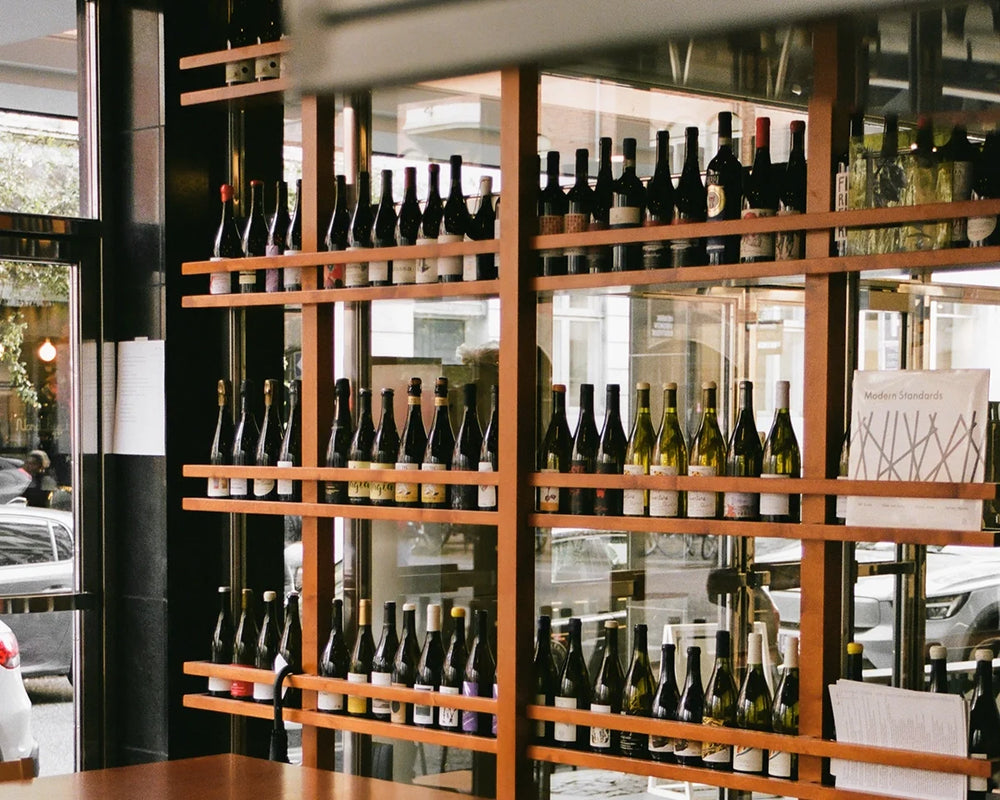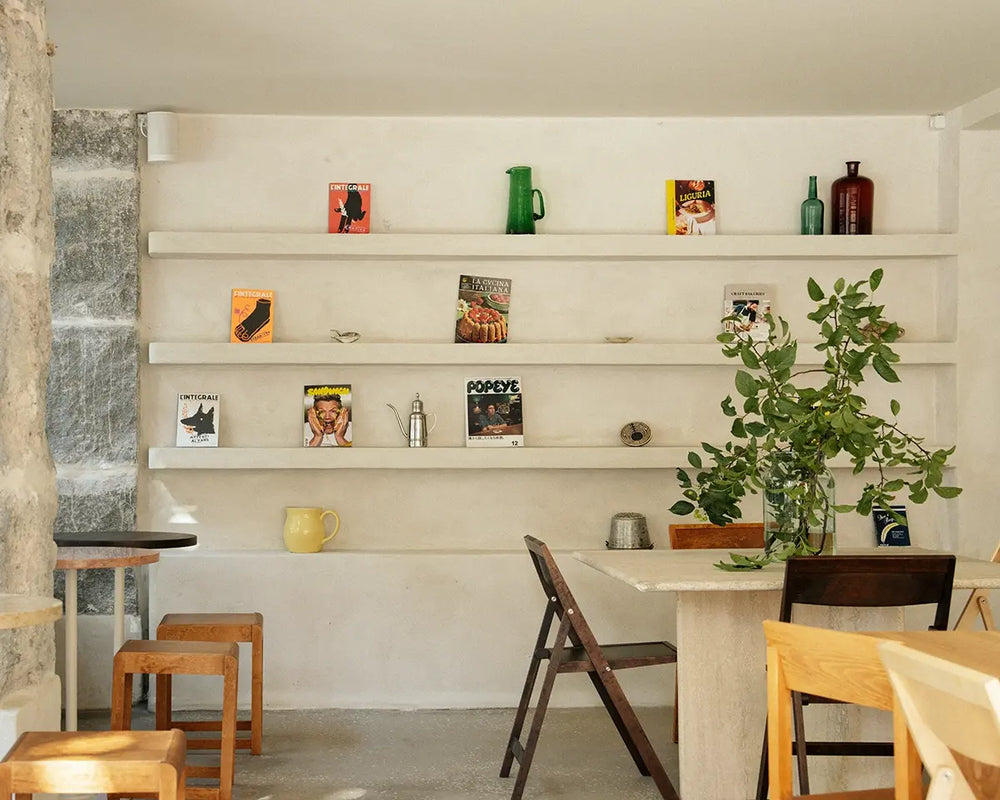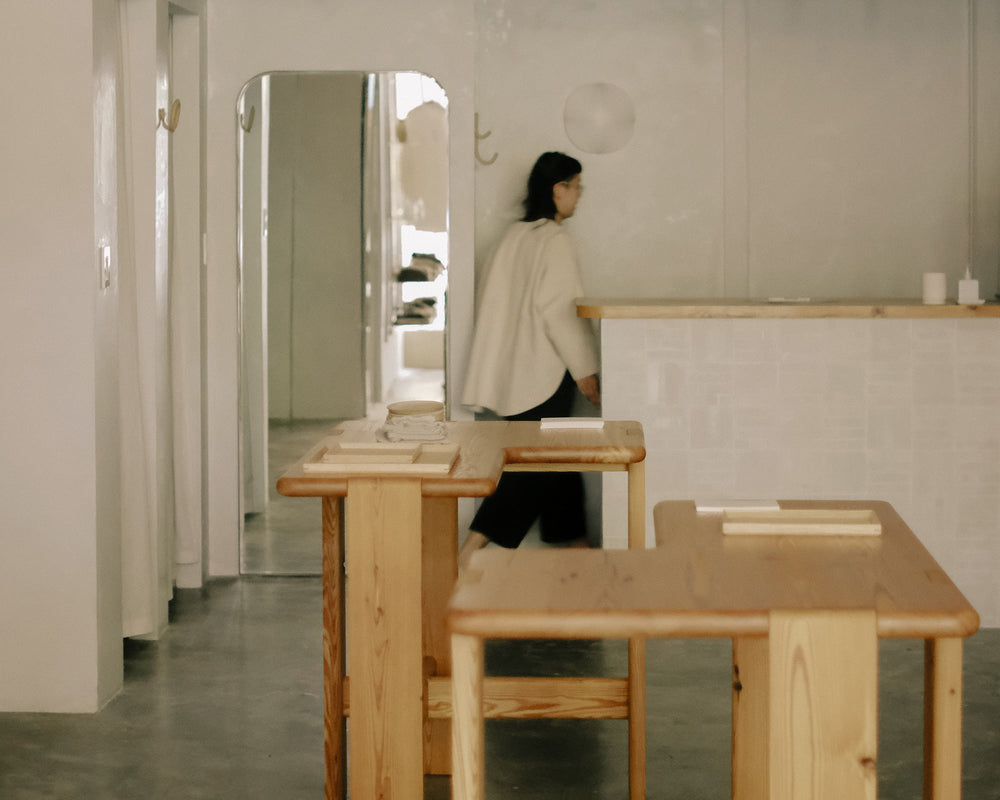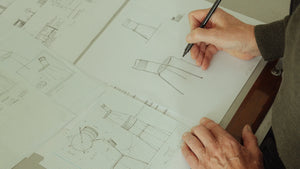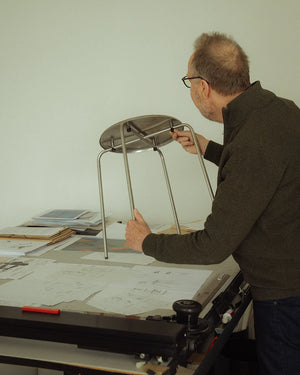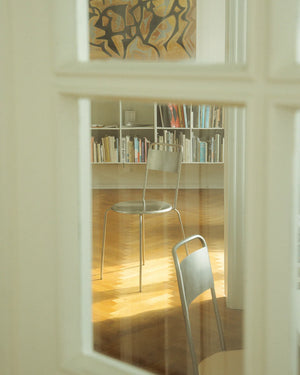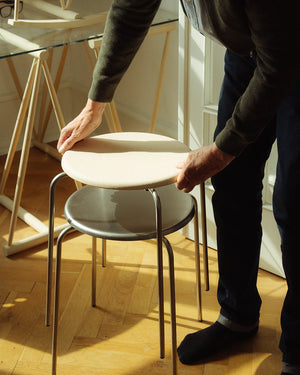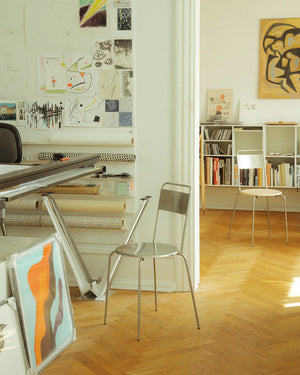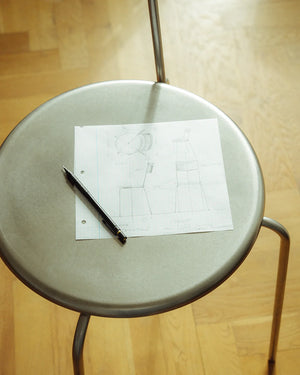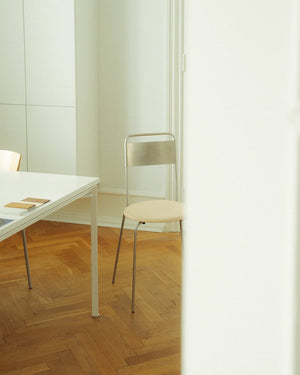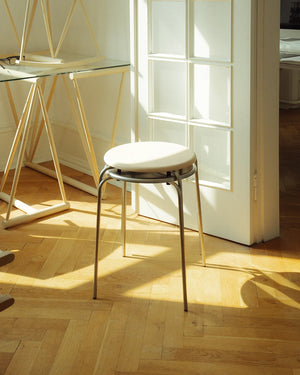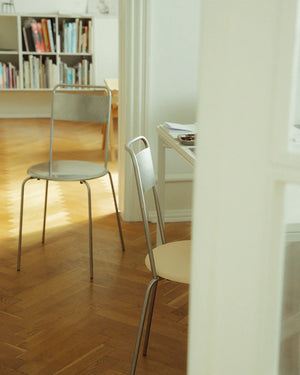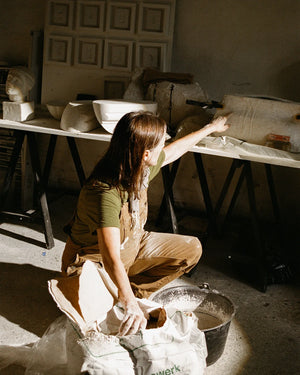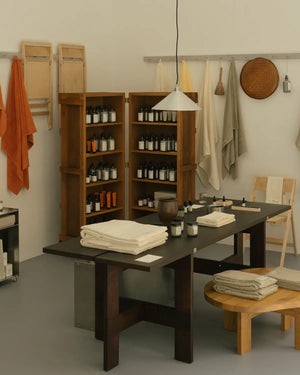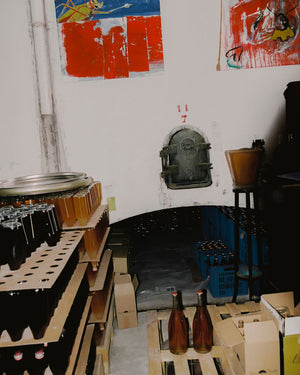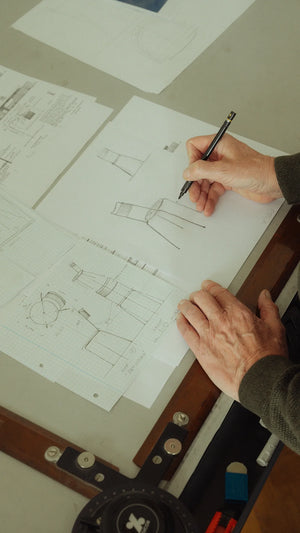
Work in Process: Petit Rond
The Work in Process series is a look inside a design. From studio practice to iteration through sketch or material selection, the series brings to light the path from idea to reality. In its first installment, discover the practice behind Petit Rond—a simple prototype from designer Troels Grum-Schwensen that found its home in the world of FRAMA seating.
The process behind the Petit Rond series has a humanistic or anthropomorphic quality to it—from its personable, light-hearted and lightweight shape to the path its design took from designer and architect Troels Grum-Schwensen’s intimate studio to the universe of FRAMA seating.
At Grumdesign-studio, this balance is illustrated in every design decision throughout the space. Located in the heart of Copenhagen, the live/work space allows for hosting guests as well as creating an environment for his focused studio practice. An example of his thoughtful approach to the space: a narrow table with rounded edges was designed specifically for a narrow room in the space, which Grum-Schwensen knew had to be the meeting room. To suit this need, the table was designed to be narrow enough to easily maneuver around while still having room to comfortably serve coffee and move around with visitors to the space—all the while making sure views of the surrounding lakes remain unobstructed.
At its origin, the first iteration of the chair was designed by Grum-Schwensen in 2020 to be used as a one-off design in a friend’s café, gallery, and outdoor space in an old sugar factory in Stege, on the island of Møn in south-eastern Denmark. Here, a clear contrast between the raw, exposed walls and the bright, slim all-steel-chair was an essential intention. A desire to “let the space be,” as Grum-Schwensen says; his architectural background made very clear as he describes his consideration for the entire space the chair would inhabit.
In his studio, the backdrop is set for the questions that guide his design process: How will this piece occupy space in a room? How will people interact with it? What proportions should be considered? Even material selection is an intimate decision specific to each project. In this case, he suggested the chair be made entirely out of steel because his friend Allan, the owner of the gallery space, is a blacksmith—and could fabricate the chairs himself.
– Troels Grum-Schwensen, Designer
With this shared ethos clear, the rest of the design process was a congruous one focused on simplicity and utility—the result striking a welcome balance between character and function in its petite, stackable form. Now fully developed and expanded to exist as a stool as well, this material contrast that initially inspired its design may influence future interiors it lives in: a living room, bedroom, or outdoor area with raw finishes will welcome Petit Rond’s clean lines. Their charming shape brings to mind a character—like simple line drawings (appropriate for a designer with an architectural approach) come to life in a space.
